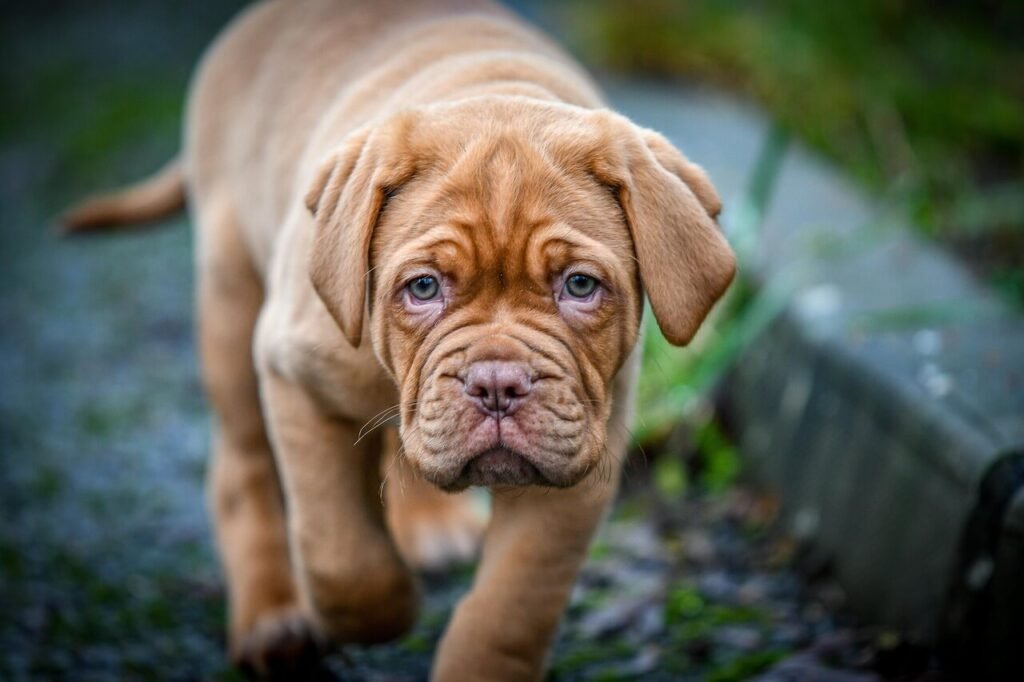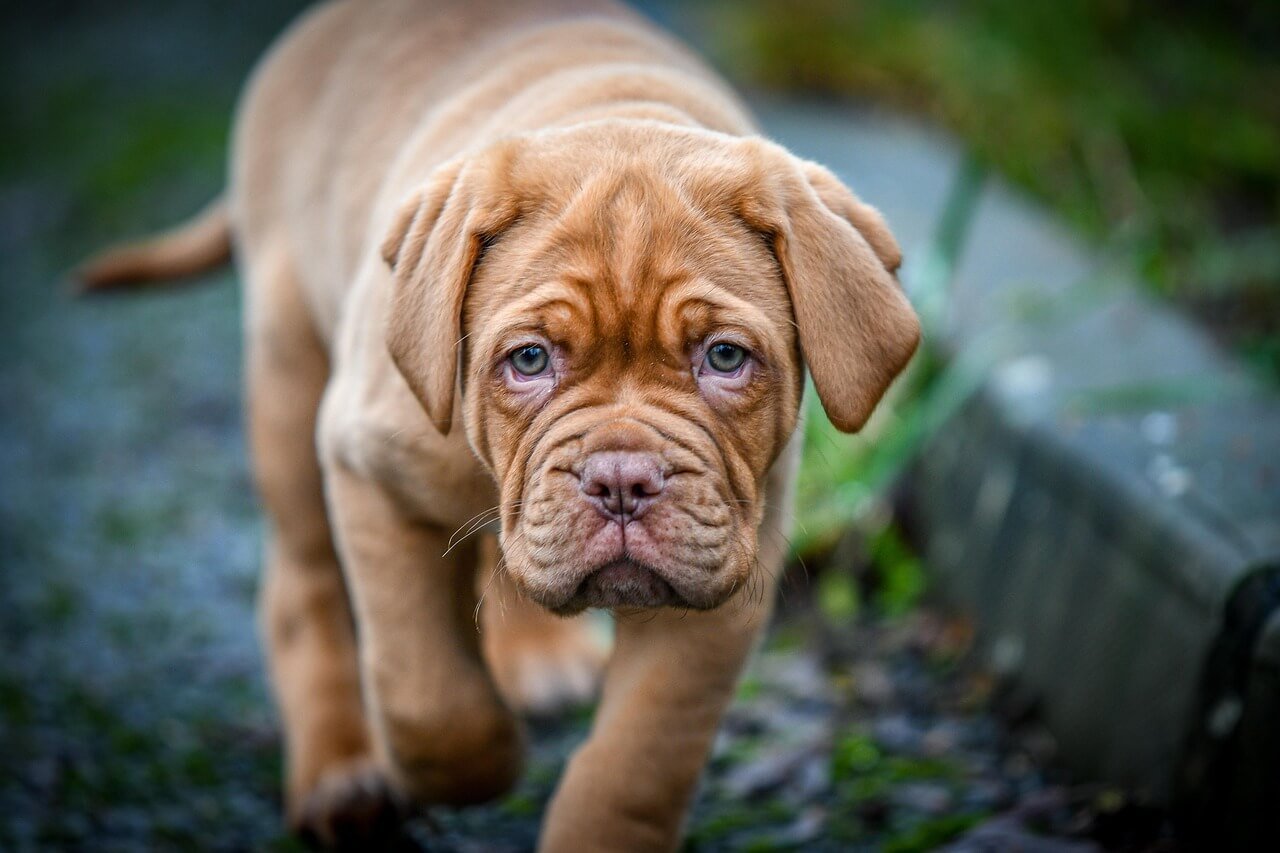Why Is My Dog Licking Its Nose So Much?
Have you ever noticed your furry friend constantly licking its nose and wondered if it’s normal or something to worry about? Dogs use their noses not only to sniff out the world but also as a tool for communication, temperature regulation, and even self-soothing. While occasional nose licking is perfectly normal, excessive licking can sometimes signal underlying issues that require attention. In this blog post, we’ll explore why dogs lick their noses, what it might mean, and when it’s time to consult a veterinarian.
Common Reasons Why Dogs Lick Their Noses
Dogs engage in nose-licking behavior for a variety of reasons, some harmless and others potentially concerning. Below are some common explanations for why your dog might be licking its nose excessively.
Natural Grooming Behavior
Dogs often lick their noses to keep them clean, especially after eating or sniffing around in dirt.Dryness or Irritation
A dry or irritated nose can prompt your dog to lick it more frequently to soothe discomfort.Allergies
Environmental or food allergies can cause itchiness or irritation, leading to increased nose licking.Anxiety or Stress
Dogs may lick their noses as a calming mechanism when they feel anxious or stressed.Medical Conditions
Certain health issues, such as infections or neurological problems, can trigger excessive licking.
Understanding these potential causes can help you determine whether your dog’s behavior is normal or if further investigation is needed.
How to Identify Excessive Nose Licking
While occasional nose licking is normal, it’s important to recognize when it becomes excessive. Here are some signs that your dog’s nose-licking habit might be problematic.
Frequency
If your dog is licking its nose nonstop throughout the day, it could indicate an issue.Accompanying Symptoms
Look for additional symptoms like sneezing, nasal discharge, or redness around the nose.Behavioral Changes
Excessive licking paired with lethargy, restlessness, or changes in appetite may signal a problem.Physical Signs
Check for swelling, sores, or unusual textures on your dog’s nose.Environmental Triggers
Notice if the behavior occurs more often in specific situations, such as during walks or after meals.
By paying attention to these indicators, you can better assess whether your dog’s nose licking is a cause for concern.
Check this guide 👉Why Does My Dog Steal My Spot? Best 7 Behavior Tips!
Check this guide 👉Why Is My Dog Snoring While Awake? Best 7 Behavior Tips!
Check this guide 👉Why Is My Dog Burping So Much? Best 7 Behavior Tips!

Signs of Normal Nose Licking | Signs of Problematic Nose Licking |
|---|---|
Occasional licking after eating | Constant licking throughout the day |
No visible irritation or sores | Redness, swelling, or sores on the nose |
Calm and relaxed demeanor | Restlessness or signs of discomfort |
No accompanying symptoms | Sneezing, nasal discharge, or itching |
Happens in familiar environments | Triggered by specific situations |
When to Consult a Veterinarian
If your dog’s nose licking seems abnormal or excessive, it’s essential to seek professional advice. Here are some scenarios where consulting a vet is recommended.
Persistent Licking
If the behavior continues for several days without improvement.Visible Wounds or Infections
Sores, scabs, or signs of infection on or around the nose.Changes in Appetite or Energy Levels
A sudden drop in appetite or energy could indicate an underlying health issue.Unusual Discharge
Nasal discharge that is thick, discolored, or accompanied by a foul odor.Behavioral Shifts
Significant changes in your dog’s mood or behavior alongside the licking.
Early intervention can prevent minor issues from escalating into more serious health problems.
Tips to Reduce Excessive Nose Licking
If your dog’s nose licking isn’t caused by a medical issue, there are steps you can take to minimize the behavior.
Provide Mental Stimulation
Engage your dog with toys, puzzles, or training sessions to reduce stress-related licking.Maintain a Clean Environment
Keep your home free of allergens and irritants that could trigger excessive licking.Monitor Diet
Ensure your dog’s food doesn’t contain ingredients that might cause allergic reactions.Use a Humidifier
Dry air can irritate your dog’s nose, so consider using a humidifier during colder months.Offer Distractions
Redirect your dog’s attention with activities like walks or playtime when they start licking excessively.
These strategies can help manage the behavior and improve your dog’s overall well-being.
Understanding the Role of Stress in Nose Licking
Stress and anxiety can significantly influence your dog’s behavior, including excessive nose licking. Dogs often use repetitive actions to self-soothe when they feel uneasy or overwhelmed. Below are some common stress-related triggers that may lead to this behavior.
Loud Noises
Thunderstorms, fireworks, or construction sounds can frighten dogs and cause them to lick their noses excessively.Changes in Routine
Sudden changes in daily schedules, such as moving homes or introducing a new family member, can stress your dog.Isolation or Loneliness
Dogs left alone for long periods may resort to nose licking as a coping mechanism.Crowded Environments
Being in busy or unfamiliar places can make your dog feel anxious and trigger the behavior.Past Trauma
Dogs with a history of neglect or abuse may lick their noses more frequently due to lingering stress.
If you suspect stress is behind your dog’s nose licking, consider addressing the root cause and providing a calming environment.
Dietary Factors That May Influence Nose Licking
Your dog’s diet plays a crucial role in their overall health and can sometimes contribute to behaviors like excessive nose licking. Certain foods or nutritional imbalances may irritate your dog’s system, leading to discomfort. Here are some dietary factors to consider.
Food Allergies
Ingredients like wheat, soy, or certain proteins can trigger allergic reactions that cause itchiness.Low-Quality Ingredients
Cheap fillers or artificial additives in dog food may irritate your dog’s digestive system.Dehydration
A lack of moisture in your dog’s diet can lead to dryness, prompting them to lick their nose more often.Overfeeding Treats
Too many treats or table scraps can upset your dog’s stomach and result in unusual behaviors.Switching Foods Too Quickly
Abrupt changes in diet can cause digestive issues that manifest as excessive licking.
By evaluating your dog’s diet and making necessary adjustments, you can help reduce nose licking caused by dietary factors.
Environmental Triggers for Excessive Nose Licking
Sometimes, external factors in your dog’s environment can lead to increased nose licking. These triggers may not always be obvious but can significantly impact your dog’s comfort level. Here are some environmental factors to watch for.
Strong Scents
Perfumes, cleaning products, or cigarette smoke can irritate your dog’s sensitive nose.Pollution
Living in urban areas with high levels of air pollution can cause nasal discomfort.Temperature Extremes
Cold, dry air in winter or hot, humid conditions in summer can dry out your dog’s nose.Pollen or Dust
Seasonal allergies to pollen or dust mites can lead to irritation and increased licking.Contact with Irritating Substances
Exposure to grass, chemicals, or other irritants during walks can prompt nose licking.
Identifying and minimizing exposure to these environmental triggers can help alleviate your dog’s discomfort and reduce excessive licking.
Frequently Asked Questions About Dog Nose Licking
Is it normal for dogs to lick their noses?
Yes, occasional nose licking is normal and often part of grooming or self-soothing.
Can allergies cause excessive nose licking?
Yes, allergies to food or environmental factors can lead to increased nose licking.
Should I be worried if my dog licks its nose all the time?
If the behavior is persistent or accompanied by other symptoms, it’s best to consult a vet.
How can I stop my dog from licking its nose too much?
Address potential triggers like allergies, stress, or dryness, and provide distractions.
What should I do if my dog’s nose is red or swollen?
Seek veterinary advice to rule out infections or other medical conditions.
Final Thoughts: Understanding Your Dog’s Nose-Licking Habits
While dogs licking their noses is a natural behavior, excessive licking can sometimes indicate an underlying issue. By observing your dog’s habits and being aware of potential triggers, you can ensure their health and happiness. Remember, when in doubt, consulting a veterinarian is always the safest option. With proper care and attention, you can help your furry companion feel comfortable and thrive.
Pemphigus Erythematosus in Cats: Best 7 Expert Tips! – Learn to recognize symptoms, manage flare-ups, and improve your cat’s quality of life.
Pemphigus Erythematosus in Dogs: Best 7 Expert Tips! – Discover causes, symptoms, and treatment options to manage this autoimmune skin condition effectively.
Cat Tympanic Membrane: Best 7 Expert Tips! – Learn how to protect your cat’s eardrum, spot issues early, and ensure lifelong auditory health.
Dog Tympanic Membrane: Best 7 Expert Tips! – Learn how to protect your dog’s eardrum, spot issues early, and ensure lifelong ear health with expert advice.





